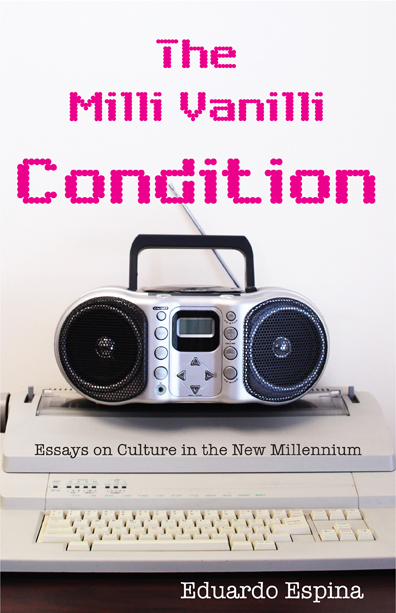“Few times in history has the art of pretending enjoyed so much continuity and led to so few consequences as during the hinge-like period between the 20th century and the beginning of the next,” Eduardo Espina asserts in this collection of 13 essays. He laments the serial falsification of events, as when the German pop duo Milli Vanilli won a Grammy for songs they did not sing.
Urguayan-born poet Espina ponders the paradoxes of modern-day life in these essays on a wide variety of subjects, including the proliferation of flags after 9/11, serial killers, nostalgia and even the Olympics.
These pieces are always thoughtful and frequently humorous. He writers tongue-in-cheek that some supermarkets are better than museums. Espina would rather visit a Kroger than the MOMA, where at least there’s a bigger collection and no admission fee! Espina remembers Montevideo, Uruguay’s very first supermarket, where his grandfather worked, and another one in Paris, where he spent five hours as “a tourist among cereals and sausages.”
This serious but entertaining collection is a must-read for anyone interested in recent history, pop culture, language and everything in between.
Finalist, 2016 Texas Institute of Letters’ Soeurette Diehl Fraser Award for Best Translation of a Book
“A stunning collection of essays on the absurdities of contemporary life.”—Marjorie Perloff, author of Wittgenstein’s Ladder
“Fascinating, bemused, wily, willful, witty, and wistful ruminations on the globalization of diminished intellectual capacity.”—Charles Bernstein, author of All the Whiskey in Heaven
“This, by far, is an engaging work. Composed of several essays, the wide-ranging topics concern themselves with contemporary life in this country and abroad. It also offers several points of view from which any reader, irrespective of nationality, will find illuminating without the preaching contemporary readers are bombarded with. It carries no agenda. Instead, the reader will find arguments for and against contemporary life, manners, the use and the misuse of language, using several points of view in clear, succinct arguments. The careful reader will also find humor and clarity. A must read, then.”—Rolando Hinojosa-Smith, author of Klail City Death Trip Series
“Exceptionally well written, organized and presented, The Milli Vanilli Condition is as informed and informative as it is thoughtful and thought-provoking. An inherently fascinating, multi-layered read, [it] is very recommended for community and academic library collections.”—The Midwest Book Review
“With help from the book’s English translator, Travis Sorenson, Espina brings a refreshing South American and particularly Uruguayan perspective to his observations of modern-day life in the United States and elsewhere and the apparently fading consequences for pretending to be someone or something you are not.”—Books, Books, & More (New) Books
EDUARDO ESPINA is one of the most original and influential contemporary Latin American poets. He was born in Montevideo, Uruguay. In 1980 he was the first Uruguayan writer invited to participate in the prestigious International Writing Program at the University of Iowa. He has lived in the United States since then. A writer with cult status, Espina has published a dozen books of essays and poetry and was awarded a John Simon Guggenheim Fellowship. The Milli Vanilli Condition is his first book in English. He lives and works in College Station, Texas.









